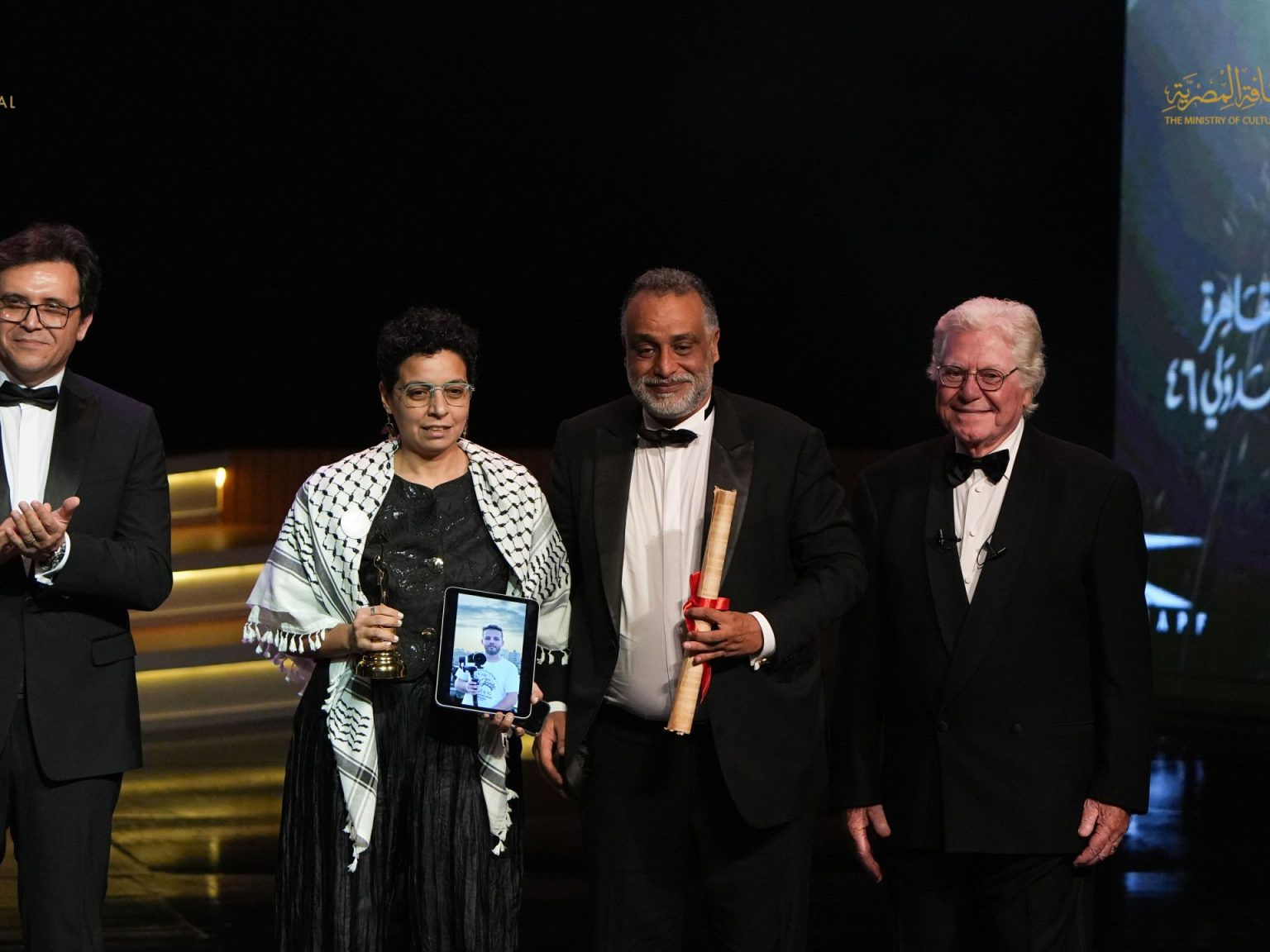The 46th edition of the Cairo International Film Festival (CIFF) concluded on November 21st, 2025, leaving a powerful and lasting impression, particularly with its poignant tribute to the ongoing Palestinian struggle. The festival wasn’t just a celebration of cinema; it became a platform for amplifying voices often silenced, culminating in a deeply emotional closing ceremony. This year’s festival, marked by strong Arab representation and critical acclaim for several films, centered around themes of resilience, identity, and the human cost of conflict, ultimately solidifying the Cairo International Film Festival’s position as a leading cultural event in the Arab world.
A Closing Ceremony Marked by Solidarity with Palestine
The final moments of the festival were profoundly moving, featuring a photograph of the young Palestinian girl, Hind Rajab, accompanied by an audio recording of her voice. Festival President, Hussein Fahmy, explained the significance of this inclusion, emphasizing that the heartbreaking sounds weren’t from a fictional drama but represented the devastating reality experienced by Hind, who spent three hours pleading for help after her family was tragically killed by Israeli fire in Gaza.
Fahmy eloquently articulated that Hind’s story embodies the widespread suffering of children in Gaza, and that cinema’s vital role is to preserve these true narratives and ensure they are not forgotten – even as global attention wanes. This act of remembrance served as a powerful statement within the context of the festival and a direct expression of solidarity with the Palestinian people.
“Kan Ya Makan Fi Gaza” and Palestinian Cinema Honored
The festival saw significant recognition for Palestinian filmmaking. “Kan Ya Makan Fi Gaza” (Once Upon a Time in Gaza), directed by Tarzan and Arab Nasser, was awarded the Best Arab Film award. The filmmakers dedicated their prize to Hind Rajab’s voice, and to the courage of Gazan cinematographer and director, Ahmed Al-Danf, creator of “Da’el Anna ‘Ard” (Our Land is Showing), filmed amidst incredibly harsh and dangerous conditions. They extended their tribute to all the steadfast people of Gaza.
Amer Nasser, the film’s author, highlighted the historical context of the award, pointing out that Gaza has faced repeated and horrific forms of devastation throughout its history. He stressed that at its core, the film is about the unwavering spirit of the Gazan people – their tenacity, their resilience, and their determination to endure despite the constant suffering. “We speak of the human… a people living through pain, yet continuing the journey,” he stated.
Additionally, “Kan Ya Makan Fi Gaza” received the Silver Award for Best Film within the official competition, while Palestinian actor Majd Eid won Best Actor for his performance in the same film. The Iraqi film “Flana,” directed by Zahra Ghandour, also received a special mention from the jury. Furthermore, Ahmed Al-Danf’s “Da’el Anna ‘Ard” earned the Youssef Sherif Rezqallah Award (People’s Choice Award), reflecting its strong connection with the audience.
Awards and Recognitions Across Festival Sections
Beyond the spotlight on Palestinian cinema, the festival celebrated a diverse range of films and talent. “Habibi Hussein,” a Palestinian film, received the Shadi Abdel Salam Award for Best Film in the International Critics’ Week competition. “The Botanist” by Jing Bi earned a special commendation from the same jury. “Fi Manzel Ahli” (In My Father’s House) by Tim Elrick was awarded the Fathy Farag Prize, a special award from the jury.
The documentary film competition saw “Thuriya Hobi” (Thuriya, My Love) receive the award for Best Documentary. This Lebanese-Qatari production incorporates footage from Maroun Bagdadi’s revered “Small Wars” (1982), detailing the initial meeting of its protagonists, alongside personal archives and dialogues exposing the profound human dimensions of their experiences.
In the “Arab Cinema Panorama” competition, Tunisian actress Afaf Ben Mahmoud secured the Best Performance award for “Joula 13” (Round 13), while the Egyptian film “Shakwa 713317” (Complaint 713317), directed by Yasser Al-Shafi’i, was awarded Best Script. Ali Saeed’s Saudi film “Did Al-Cinema” (Against Cinema) received the Salah Abu Seif Award.
The short film competition awarded “Teta Wa Teta” (Grandma and Grandma) directed by Lina Safieh the Best Arabic Short Film, while “Shaware’ Al-Qahira” (Cairo Streets) by Abdullah Tayea got the Youssef Shahin Prize, and “Highly Elevated Neck” (New Sora) won the Jury Prize. “The Things You Kill” by Ali Reza Khatami secured the FIPRESCI International Federation of Film Critics award. “The Botanist” also earned the Best Asian Long Film “Netpac” award, acknowledging exceptional Asian cinematic experiences and fresh artistic viewpoints. “The Hornet” (“Al-Ya’asub”) took home the Golden Pyramid for Best Film in the official competition, cementing its status as a standout work.
Strengthening Regional Collaboration in Cinema
Hussein Fahmy used the closing ceremony to extend congratulations to the Qatari people, coinciding with the launch of the Doha Film Festival. He also announced a new cooperation agreement between the Cairo International Film Festival and the Film Committee at the Media City in Qatar.
This partnership is expected to foster new avenues for the Arab film industry, promoting joint productions and expanding opportunities for filmmakers across the region. The goal is to create a more collaborative and vibrant cinematic landscape within the Arab world.
The 46th CIFF, lasting from November 12th to 21st, 2025, has concluded, leaving a powerful legacy of impactful storytelling, artistic excellence, and a resolute commitment to amplifying important voices, particularly those advocating for peace and human dignity in Palestine. It underscored the role of the Cairo International Film Festival – and cinema as a whole – in bearing witness to, and preserving, the human experience, even in its most tragic forms.


